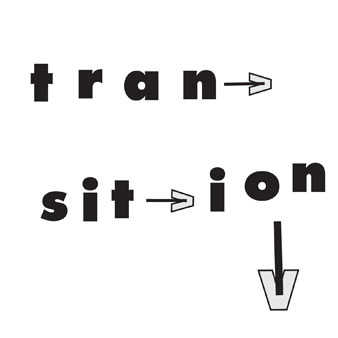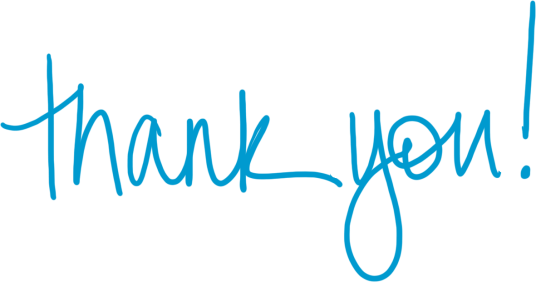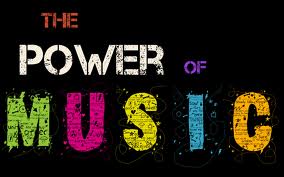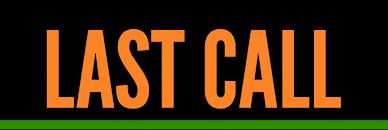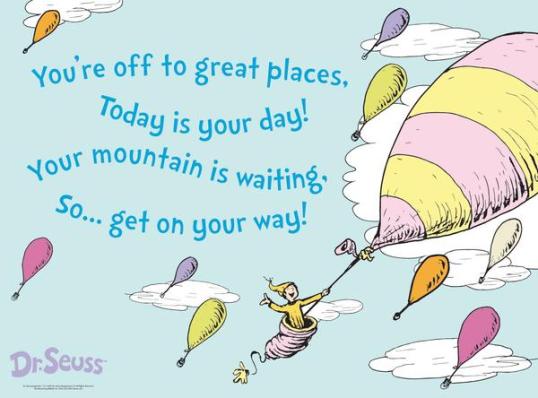Tran–>sit–>ion: From Grad to Pro
As I get ready to take job ONE, I’ve been reflecting on just what the transition from grad student to professional is going to mean. Here are my thoughts…
LIFESTYLE
Even if you’ve worked while in grad school, there are certain elements of the grad student lifestyle that are bound to change as you transition into a full-time professional role. First, if you have an internship (like I do) with strange hours that do not always occur during the business day, it can have it’s perks like the ability to sleep in. Once structured office hours are part of your life, that’s just not an option anymore. I don’t know about you, but this is going to be a hard pill for me to swallow because I value a long sleep after a long night. Then, there’s appropriate dress. For many grad students, it’s easy to get away with wearing jeans or even sweatpants to class or certain meetings. Well, it was nice when it lasted because that’s also something that will likely change. It’ll probably be required for us to dress professionally in the workplace. It’s also important that we dress in such a way that helps set us apart from students, especially if we’ll be pretty close in age to students with whom we work. So, start getting that wardrobe ready.
EXPECTATIONS
Let’s face it. Once we relinquish the title of grad students and assume that of professional, people are going to start expecting more of us. This includes employers and colleagues, as well as friends and family. Expectations will feel particularly different if you’re taking your first professional job since being a student for 18 plus years. While many of us take on various responsibilities in our work as grad students, there will undoubtedly be a change in the level of responsibility and accountability that we experience in a professional job. Just as others will expect more out of us, we must expect more out of ourselves. Set that bar high!
LIFE GOALS
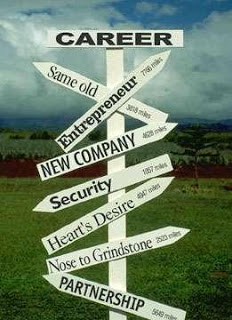 In moving from grad student to professional, the “future” becomes real. Job one is that first step toward the rest of your career and LIFE. It’s time to make choices about direction and short/long term goals in your professional life, as well as your personal life. These choices can be hard. If it hasn’t already, life can get pretty complicated. Not to say that grad students have no direction, but becoming a professional means that it’s time to steer your own career ship. Entering the professional requires big decisions from taking that first job to leaving it for the next. For many people, that first or second job may not have finite cap of time attached to it like grad school had. It’s important to constantly evaluate where you’ve been, where you are, and where you want to go.
In moving from grad student to professional, the “future” becomes real. Job one is that first step toward the rest of your career and LIFE. It’s time to make choices about direction and short/long term goals in your professional life, as well as your personal life. These choices can be hard. If it hasn’t already, life can get pretty complicated. Not to say that grad students have no direction, but becoming a professional means that it’s time to steer your own career ship. Entering the professional requires big decisions from taking that first job to leaving it for the next. For many people, that first or second job may not have finite cap of time attached to it like grad school had. It’s important to constantly evaluate where you’ve been, where you are, and where you want to go.
THE LEARNING CURVE
We’re not perfect as grad students. And, get this…we won’t be perfect as professionals! We will definitely make mistakes as we learn the ropes of our new job and culture of the organization or institution for which we’ll work. Over the past couple years, many of us have gotten comfortable with our lives as grad students. It’s important to embrace that feeling of being the new kid on the block. Open yourself to learn from people around you as you take this next step.
NO TESTS!
There are some perks with leaving the student lifestyle behind. For one, no more tests! And, no more papers! Let’s be honest, this is pretty exciting. Let’s not forget…no more buying hundreds of dollars of text books as well.
FOCUS
As a grad student in classes and working in various internships and with multiple projects, it’s very easy to feel as though you’re being pulled in a million different directions. While becoming a professional comes with it’s own challenges and a significant workload, it’s also a time to focus on your role and how you can commit your time and energy to really doing your job well and leaving your mark.
Like all good things, grad school must come to an end. It hasn’t been an easy two years, but it’s definitely been worthwhile. During my two years in the College Student Affairs program, I’ve worn different hats as a Hall Director, intern, supervisor, mentor, advisor, and student. In just about one week, I’ll be taking off that student hat…at least for now. Thank you for the opportunity to reflect on the grad student experience through this blog. I hope you have found my posts somewhat interesting and hopefully entertaining at times. It’s now time for me to take my next step and become a full-time professional. Job one, here I come!
Good luck to my fellow grad school grads…And, to those still toiling over papers, readings, group projects, and internships, enjoy the ride…
